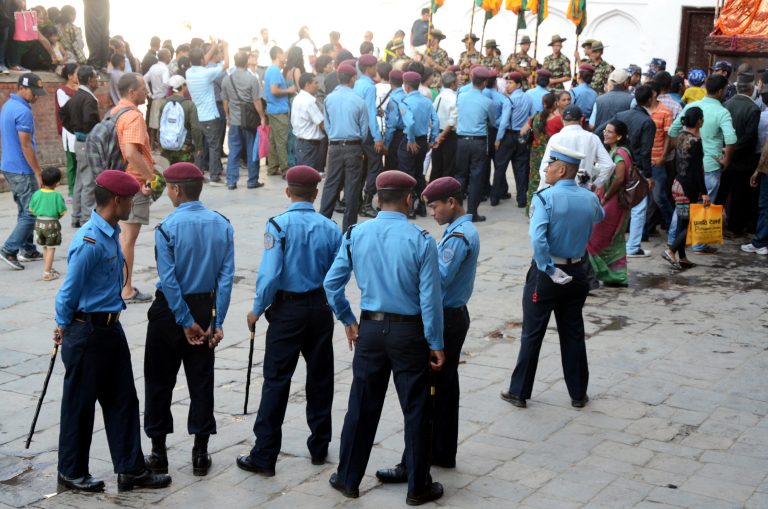Nepal Police have arrested Durga Prasai, a controversial businessman and royalist figure, for his alleged role in violent protests that rocked Kathmandu on March 28. Prasai, who had been missing since the incident, was caught near the Nepal-India border at Kakarbhitta earlier this week.
The arrest follows weeks of nationwide speculation about his whereabouts and rising public pressure for accountability. According to Nepal Police, Prasai was taken into custody along with his bodyguard and is now being transported to Kathmandu for legal proceedings.
How Police Tracked Him Down
Authorities reported that Prasai had crossed into India shortly after the violence. His capture was the result of a coordinated effort between border patrols and intelligence units. Police confirmed that Prasai was first held at the District Police Office in Bhadrapur, Jhapa, before being flown to the capital.
“Prasai and his bodyguard have been arrested and brought to Kathmandu,” said an official statement from the Nepal Police Headquarters.
Upon landing at Tribhuvan International Airport, Prasai will be taken to the District Police Complex and later moved to the Bhadrakali custody facility for interrogation.
Facing Serious Charges
Durga Prasai will be presented before the District Court for a remand extension. The court process will be managed by the District Public Prosecutor’s Office. Police officials say he will be investigated for crimes against the state, a charge that has previously been used against other political figures such as Rabindra Mishra and Dhawal Shamsher Rana.
The charges stem from a protest organized by royalist groups on March 28, which turned violent and resulted in the deaths of two people. Property damage is estimated at Nepal Rupees (NRs) 460 million, including vandalism of public vehicles and attacks on police forces.
Royalist Movement Under Scrutiny
The protests were led by Prasai and his close associate, Nawaraj Subedi, under the banner of the royalist movement. The demonstrations had drawn thousands of participants waving national flags and chanting slogans in support of the monarchy.
Police say Prasai played a direct role in inciting violence. “We have enough video evidence and eyewitness accounts that show Prasai encouraging aggression during the protest,” said a senior investigating officer.
Officials are now preparing to seek strong legal action, aiming to hold Prasai accountable for organizing and leading the destructive rally.
Political Backing for Monarchy Gains Momentum
Meanwhile, the Rastriya Prajatantra Party (RPP), which supports a constitutional monarchy, is planning a new round of protests. Speaking at a large gathering in Kathmandu on Tuesday, RPP President Rajendra Lingden proposed a political reform that includes reintroducing the monarchy.
“The country cannot continue like this. We need a new agreement—a peaceful, consensus-based solution that reflects the will of the people,” Lingden said, addressing a crowd of several hundred.
The RPP has announced plans to launch a capital-centered protest starting from the third week of April. The party has also formed a committee to study alternative governance models.
Public Reaction and Ongoing Debate
Prasai’s arrest has triggered mixed reactions across Nepal. While critics applaud the police for finally taking action, his supporters are calling it politically motivated.
Some legal experts argue the case could set a precedent for how the government deals with political protests that turn violent.
“This is not just about one man. It’s about drawing the line between freedom of expression and incitement to violence,” said Bishnu Pokharel, a senior advocate at the Supreme Court.
What’s Next?
Durga Prasai’s legal journey is just beginning. With charges that include inciting public violence, damaging public property, and violating national security laws, the investigation may take several weeks.
Police are also expected to question other organizers and funders of the March 28 protest. The case has now become a key test of how the state handles high-profile political unrest in a time of growing public dissatisfaction.


